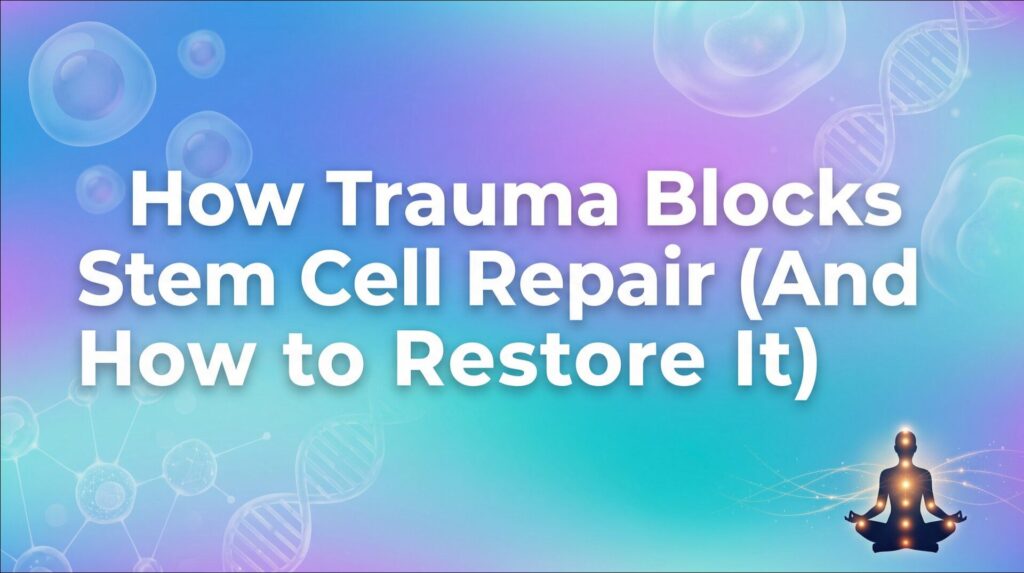Stem cells have been getting a lot of hot press lately as a promising treatment option for chronic musculoskeletal pain. More and more studies are looking at how stem cells can be used to treat conditions such as arthritis.
But what about umbilical cord derived stem cells? Well in this video, Dr Jeff Peng goes over what umbilical cord stem cells are as well as reviews the results of a newly published clinical trial to determine whether umbilical cord stem cell therapy works.
Video Transcript:
Stem cells have been gaining a lot of hot press lately as a promising treatment option for chronic musculoskeletal pain. More and more studies are looking at how stem cells can be used to treat conditions such as arthritis.
My other videos have reviewed how platelet-rich plasma, bone marrow stem cells, adipose derived stem cells, and amniotic fluid products can have pain relieving effects when used to treat knee arthritis. But what about umbilical cord derived stem cells?
Well in this video we’ll go over what umbilical cord stem cells are as well as review the results of a newly published clinical trial to determine whether umbilical cord stem cell therapy works [Music]
Hey everyone. Dr Jeff Peng here. My goal is to help each and every one of you live an active and healthy lifestyle. So if that’s something you’re interested in, please consider subscribing to my channel.
The field of ortho biologics has exploded over the last few years more and more clinical trials are showing the benefits of popular treatments such as platelet-rich plasma as well as bone marrow-derived stem cell injections.
Researchers continue to search for novel sources of stem cells to treat orthopedic conditions and one of those sources is human umbilical cord derived mesenchymal stem cells.
So the first thing is, why would we want to use this as a potential source for cells? One big reason is because as we age we tend to have lower stem cell counts. So for the elderly, many of whom have chronic orthopedic conditions and would benefit from ortho biologics treatment, have lower cell counts which may translate to lower effectiveness.
So in these clinical scenarios using umbilical cord derived stem cells will provide an excellent source of cells and growth factors regardless of age and medical comorbidities. Another potential reason we may want to use umbilical cord stem cells is because they may have greater proliferative capacity than cells obtained from bone marrow or adipose tissue.
Okay so how are these cells isolated? One method is to isolate cells directly from human placental tissue. The placenta is the organ which provides oxygen and nutrients to a developing baby. And after a baby is delivered the placenta is expelled from the uterus and this is often called the afterbirth.
Normally the placenta is then discarded, but what pharmaceutical companies can do is to take this placental tissue (which would have been thrown away) and process the cells under sterile conditions to create a product that we can then inject into an arthritic knee.
The other way to isolate umbilical cord stem cells is to take the stem cell rich cord blood and process the blood products obtained from it. You can think of this like drawing blood to obtain PRP, but instead of getting it from your veins we’re getting the blood products from an umbilical cord after delivery. These cells are then processed, cultured, and sterilized for use.
Okay so that’s how we get the stem cells, but the next question is, “does it actually work?” This is a systematic review looking to answer the question does umbilical cord stem cell therapy work to treat knee arthritis. They included seven studies with a total of 385 patients with a mean follow-up time period of two years.
Let’s first look at how many injections were given. Four of these studies administered just one injection to each patient. One study administered one injection of umbilical cord stem cells followed by two injections of hyaluronic acid. Another study administered one injection of stem cell at baseline and then a second injection at six weeks if the patient’s pain was not reduced. The last of the seven studies gave injections at baseline and then at six months.
So first off you can see that injection protocols vary widely. This is not surprising because this is a new treatment and we’re still in the phase of figuring things out. But we can fine-tune protocols once we have some data to suggest that this type of treatment does in fact work.
And what about outcomes? The researchers write that of the five studies that reported overall womac scores (which is a functional scoring system for osteoarthritis), four studies demonstrated significant improvement from pre-treatment to latest follow-up.
Four studies reported symptoms using the IKDC scoring system which is another functional scoring system for knee pain. Two of the studies found patients improved significantly from pre-treatment to latest follow-up.
The other two studies reported trends towards improvement, but were not found to be statistically significant. The same is true for the studies reporting VAS pain scores. Two studies found statistically significant improvements in terms of pain control and the other two studies found a trend towards improvement, but not statistically significant.
Now what about side effects? After all we are injecting a foreign substance into the knee. The authors write that the most common side effect reported from these studies was post-injection pain. There were no mentions of allergic reaction, no mention of infection.
In three studies there were no adverse reactions.
So what did the authors conclude? They state that patients undergoing treatment of knee osteoarthritis with human umbilical cord derived mesenchymal stem cells might be expected to experience improvements in clinical outcomes.
Additional high quality randomized studies are needed to better determine their efficacy.
So it seems like this treatment might help symptoms related to knee arthritis, but so far we have a rather small sample size. We need more data and larger trials to determine whether this truly helps. In addition we need comparative data to other treatments for example umbilical cord stem cell treatment compared to bone marrow treatment or even compared to platelet-rich plasma.
The other really important thing to point out here is that human umbilical cord stem cells are not currently approved by the FDA and because of this physicians in the United States cannot perform these treatments unless actively participating in a clinical trial. But these studies are still incredibly important. We’re still learning so much about ortho biologics and platelet-rich plasma as well as stem cell therapy.
It seems all of these injections can benefit those who are suffering from knee arthritis, but we need more data. Which injection is better? What’s the best protocol? How do they compare to each other? What is their safety profile?
With more clinical trials we can start to answer these questions and then fine-tune them so that we can offer more treatments to patients who suffer from knee arthritis.
What’s clear is that we need to start moving away from repetitive cortisone injections and ortho biologic treatments seem like a great alternative.
And if you’re interested in this topic or want to learn more about ortho biologics, check out this deep dive video next. Thanks for watching.



